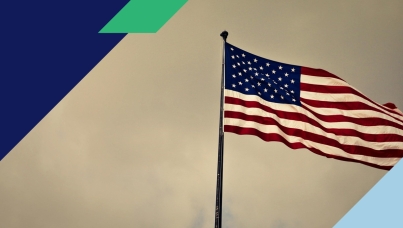In entertainment media, many Americans feel that key groups are underrepresented or shown in a negative light
Washington DC, December 6, 2023—New Ipsos polling finds that Americans feel some groups, like white Americans, liberals, and the wealthy, are well represented and shown in a positive light across entertainment media. On the other hand, many feel people with disabilities, immigrants, Asian Americans, and trans people are underrepresented and shown in a negative light across entertainment media. The public is largely split on whether the entertainment industry authentically represents diverse stories, and the values embedded in media.
When it comes to media consumption, Americans are spending a lot of time on their screens, with go-to types of content for many being sitcoms or comedies and action or adventure stories. In addition to the findings below, be sure to watch our recorded webinar featuring highlights from this survey.
Detailed findings:
1. Americans are more likely to feel that white Americans, liberals, white collar professionals, and wealthy people are overexposed and portrayed in a positive light in media, while respondents feel conservatives, immigrants, religious Christians, and trans people are excluded and portrayed in a negative light in entertainment.
- Overall, Americans are more likely to feel that straight or heterosexual people, white Americans, women, and white collar professionals are represented in a more positive light in entertainment.
- By comparison, Americans are more likely to feel that conservatives, immigrants, religious Christians, or trans or non-binary people are represented in a more negative light in media.
- When asked which groups tend to be excluded in entertainment, like TV and movies, respondents are more likely to say people with disabilities, people like them, immigrants, and Asian Americans. Democrats and independents are more likely than Republicans to feel that people like them are over-exposed in media.
- Americans are less likely to feel that wealthy people, white Americans, liberals, and men are excluded from entertainment. Among the groups that Americans feel are already well represented in media, only Democrats are more likely to feel that that they are over-exposed in media relative to Republicans.
2. Americans are divided on the values and stories shown in entertainment.
- Half of Americans question the authenticity of diverse media representation. Half (50%) feel that there are too many movies and shows being made with diverse actors and characters just to say they did, without adding to the story.
- White (54%) and Hispanic (53%) respondents are more likely to feel this way than Black Americans (31%). While race is a major fault line, partisanship is a bigger divider; three in four Republicans agree with this statement, while half (51%) of independents do and only 29% of Democrats do too.
- Two in five agree they can always find entertainment that reflects their beliefs and values (40%) and that most of what’s coming out of Hollywood is too focused on the wealthy and elites (41%).
- A similar share (39%) agrees that most of the stuff coming out of Hollywood is too liberal for their taste. There are significant differences by partisanship, with three in four Republicans (75%) agreeing with this, compared to just 38% of independents and 12% of Democrats.
- Though, few (27%) report that they like to consume entertainment that challenges their beliefs and value.
- To that end, nearly three in four Americans (72%) agree that the mainstream media is more interested in making money than telling the truth.
3. Among the tested TV or streaming events in the past year, NFL football, Stranger Things, and Yellowstone are the shows or events that most Americans report watching.
- One in four Americans say they’ve watched NFL Football in the past year. More men (35%) than women (16%) report doing this. NFL football is also more popular with Americans 65+ (32%) than younger ones (18% among 18-34, 23% among 35-49, and 28% among 50-64).
- One in five Americans report watching Stranger Things in the past year. Those under 35 (26%) and 35-49 (24%) are more likely than their older counterparts (14% among those 50-64 and 8% 65+) to report watching Stranger Things.
- On the other hand, far fewer Americans report watching shows like Grey’s Anatomy (6%), Monster: The Jeffrey Dahmer Story (5%), and Vanderpump Rules (1%).
About the Study
This Ipsos poll was conducted between August 25-27, 2023, by Ipsos using the probability-based KnowledgePanel®. This poll is based on a nationally representative probability sample of 1,026 general population adults age 18 or older.
The margin of sampling error for this study is plus or minus 3.1 percentage points at the 95% confidence level, for results based on the entire sample of adults. The margin of sampling error takes into account the design effect, which was 1.03 for all respondents.
In our reporting of the findings, percentage points are rounded off to the nearest whole number. As a result, percentages in a given table column may total slightly higher or lower than 100%. In questions that permit multiple responses, columns may total substantially more than 100%, depending on the number of different responses offered by each respondent.
The survey was conducted using KnowledgePanel, the largest and most well-established online probability-based panel that is representative of the adult US population. Our recruitment process employs a scientifically developed addressed-based sampling methodology using the latest Delivery Sequence File of the USPS – a database with full coverage of all delivery points in the US. Households invited to join the panel are randomly selected from all available households in the U.S. Persons in the sampled households are invited to join and participate in the panel. Those selected who do not already have internet access are provided a tablet and internet connection at no cost to the panel member. Those who join the panel and who are selected to participate in a survey are sent a unique password-protected log-in used to complete surveys online. As a result of our recruitment and sampling methodologies, samples from KnowledgePanel cover all households regardless of their phone or internet status and findings can be reported with a margin of sampling error and projected to the general population.
The data for the total sample were weighted to adjust for gender by age, race/ethnicity, education, Census region, metropolitan status, and household income. The demographic benchmarks came from the 2022 March Supplement of the Current Population Survey (CPS).
- Gender (Male, Female) by Age (18–29, 30–44, 45–59 and 60+)
- Race/Hispanic Ethnicity (White Non-Hispanic, Black Non-Hispanic, Other, Non-Hispanic, Hispanic, 2+ Races, Non-Hispanic)
- Education (Less than High School, High School, Some College, Bachelor or higher)
- Census Region (Northeast, Midwest, South, West)
- Metropolitan status (Metro, non-Metro)
- Household Income (Under $25,000, $25,000-$49,999, $50,000-$74,999, $75,000-$99,999, $100,000-$149,999, $150,000+)
- Party ID (Democrat, Republican, Independent, Something else)
For more information on this news release, please contact:
Chris Jackson
Senior Vice President, US
Public Affairs
+1 202 420-2025
[email protected]
About Ipsos
Ipsos is one of the largest market research and polling companies globally, operating in 90 markets and employing over 18,000 people.
Our passionately curious research professionals, analysts and scientists have built unique multi-specialist capabilities that provide true understanding and powerful insights into the actions, opinions and motivations of citizens, consumers, patients, customers or employees. Our 75 solutions are based on primary data from our surveys, social media monitoring, and qualitative or observational techniques.
Our tagline "Game Changers" sums up our ambition to help our 5,000 customers move confidently through a rapidly changing world.
Founded in France in 1975, Ipsos has been listed on the Euronext Paris since July 1, 1999. The company is part of the SBF 120 and Mid-60 indices and is eligible for the Deferred Settlement Service (SRD). ISIN code FR0000073298, Reuters ISOS.PA, Bloomberg IPS:FP www.ipsos.com



